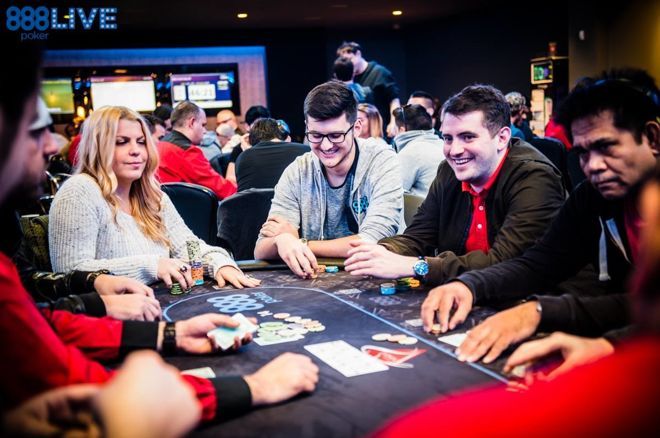Warning: Undefined array key "post_type_share_twitter_account" in /var/www/vhosts/casinonewsblogger.com/public_html/wp-content/themes/cryptocurrency/vslmd/share/share.php on line 24

When you sit down at a poker table, whether it’s a cash game or a tournament, there are a few unspoken rules that everyone’s expected to follow. They’re not written anywhere, but they go a long way in keeping the game fair and enjoyable for everyone. Things like playing at a steady pace so the action doesn’t drag, or showing respect to the dealers and staff who keep the games running smoothly. These are just a few of the “unwritten rules” every poker player should know.
Hit and Run
One of the biggest unwritten rules of poker is the dreaded “hit and run.” That’s when a player joins a cash game, wins a few big pots, racks up their chips, and leaves immediately. While it’s completely within your rights to walk away whenever you want, this move is frowned upon. It can leave a bad taste for the other players, take money off the table, and make opponents less likely to give you action in future games. More importantly, it diminishes the overall experience for everyone at the table. If you only have a limited amount of time, it’s courteous to let the table know ahead of time, that way, if you win a few pots early, it doesn’t feel like you’re just doing a “hit and run.”
Pace of Play and Calling the clock
Another important unwritten rule of poker is pace of play. In tournaments, slow play can be especially harmful, as it reduces the number of hands everyone sees while blinds are increasing. Whether you’re in a cash game or a tournament, it’s important to act in a timely manner to keep the game moving. Slow play frustrates other players and disrupts the flow of the table.
Unnecessary tanking can take many forms, taking 30+ seconds to make every pre-flop decision with weak hands, or “Hollywooding” on the river acting as if you’re considering a call when it’s clear you’ll fold, just to waste time or protect your image at the table.
Recent examples comes from the 2025 WSOP, where players like Martin Kabrhel and Will Kassouf faced criticism for tanking (among other things). After numerous clock calls throughout the day, Kabrhel was given as little as 10 seconds from players before calling the floor in Event #5: $5,000 Pot-Limit Omaha. While Kassouf’s antics became so extreme that by Day 6 of his Main Event run he also had just 10 seconds to make ANY decision, before being banned for the remainder of the 2025 WSOP after his elimination.

On the other end of the spectrum, it’s equally important not to overuse the clock on a player who has generally been acting at a good pace but now faces a tough decision. Players should be allowed extra time when they’re in a tricky spot or making a choice that could affect their tournament life. Just as it’s important to call the clock on those who habitually slow the game down, it’s just as important to give disciplined players the time they need for difficult decisions.
Show Your Hand
Few things slow down a poker game more than players stalling at showdown. When two players are all in, both hands must be tabled — there’s no reason to hesitate or wait for the other person to flip first. Just turn them over and move on.
The same applies when a river bet is called. The bettor should show their hand immediately, not hold their cards or wait for the caller to act. It’s simple courtesy and keeps the game moving.
If you were bluffing, a quick “You’re good” works fine. And while the caller has the right to see your cards, forcing someone to show a losing hand is poor form.
Respect (and tip) Dealers and Staff

Respect goes a long way in poker, and one of the best ways to show it is by taking care of the people who make the game possible. Dealers, floor staff, and waitstaff all work hard to keep things organized, fair, and enjoyable for everyone at the table.
Tipping isn’t a rule, but it’s part of what keeps live poker running smoothly. Whether you’ve just won a small pot or booked a big score, a simple tip and kind word shows you appreciate the effort that goes into creating a good game. Even when things aren’t going your way, treating the staff with respect helps set the tone for the whole table.



